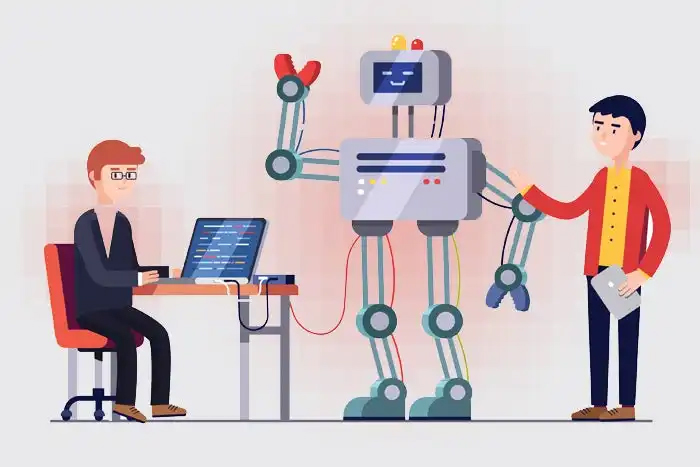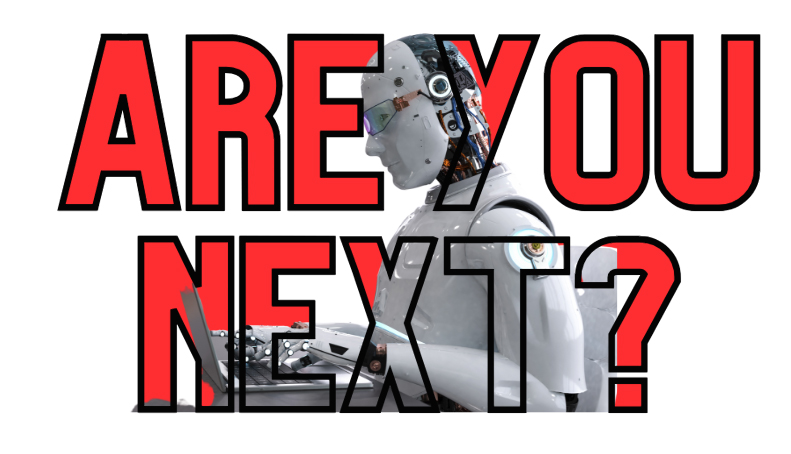Mumbai: In the ever-evolving landscape of the gaming industry, the emergence of AI stands as a transformative force, reshaping the way games are developed, played, and experienced. As AI technologies continue to advance at a rapid pace, game developers find themselves at a critical juncture, facing a delicate balancing act between harnessing the power of AI for innovation and ensuring the preservation of job security and human creativity within the sector.
The intersection of AI advancements and job security in the gaming industry presents a complex tapestry of opportunities and challenges that demand careful consideration and strategic navigation. From revolutionising gameplay experiences to potentially displacing traditional roles, AI's impact on the gaming sector is profound and multifaceted.
The main focus is on the intricate dynamics at play as developers explore the vast potential of AI in game development while grappling with concerns surrounding job security, ethical implications, and the need to strike a harmonious balance between technological advancement and human ingenuity. By examining these critical issues through a lens of innovation, sustainability, and ethical responsibility, we aim to shed light on the evolving landscape of gaming in an AI-driven world.

Changing the Game Development Landscape
Gaming executives recognise the potential of generative AI to revolutionise the video game industry over the next 5 to 10 years, with expectations that it will contribute significantly to the development process. However, concerns linger about job displacement and the impact on talent models as AI technologies evolve within the sector.
AI's influence extends beyond gameplay enhancements to optimising monetisation strategies in games, offering both positive outcomes and potential challenges. The adoption of AI in game development introduces opportunities for streamlining processes, such as automating tasks like content generation and testing, which can lead to more efficient game launches and higher customer satisfaction. AI-driven algorithms are not only enhancing graphics and realism but also enabling personalised storytelling experiences tailored to individual player preferences.
Current State of AI in the Gaming Industry
The current state of AI in the gaming industry is characterised by a significant transformation driven by the integration of artificial intelligence technologies. AI is revolutionising gameplay experiences, enhancing graphics and realism, streamlining game development processes, and redefining the role of game designers. Here are key points highlighting the impact of AI in the gaming sector:
1 Revolutionising Gameplay: AI is enabling more immersive and engaging gameplay experiences by creating dynamic and personalised content, such as intelligent NPCs, adaptive environments, and enhanced player interactions.
2 Enhancing Graphics and Realism: AI-driven algorithms are improving graphics quality, generating lifelike textures, environments, and characters, and simulating realistic interactions between objects and characters.
3 Streamlining Game Development: AI automates various tasks in game development, such as generating procedural content like terrain and levels, optimising monetisation strategies, and enhancing pre-production planning processes.
4 Challenges and Concerns: While AI offers numerous benefits to the gaming industry, challenges include ensuring ethical AI use, managing player expectations, balancing innovation with responsibility, addressing job displacement concerns due to automation, and navigating data privacy and security issues.
Job Security in the AI Era
In the era of artificial intelligence (AI), the evolving technological landscape raises significant questions and concerns about job security across various industries, including the gaming sector. As AI technologies continue to advance and integrate into different aspects of game development, there is a growing apprehension about the potential impact on traditional job roles within the industry. Automation and AI-driven processes can streamline tasks, optimise workflows, and enhance efficiency, but they also pose a risk of displacing human workers who traditionally perform these functions.
The gaming industry, like many others, faces the challenge of balancing the benefits of AI adoption with the preservation of job security for its workforce. There is a valid concern about the displacement of jobs that rely on manual or repetitive tasks. Developers and industry stakeholders must navigate this delicate balance by exploring ways to upskill employees, restructure job roles to align with AI integration and prioritise human creativity and innovation in game design.
Addressing job security in the AI era requires a proactive approach from both companies and individuals within the gaming industry. Embracing AI technologies while simultaneously investing in employee training and development can help mitigate job displacement risks and foster a more sustainable workforce. By maintaining a culture of continuous learning, adaptability, and collaboration between humans and AI systems, game developers can harness the full potential of AI advancements while safeguarding job security and promoting a thriving ecosystem where human creativity remains at the forefront of innovation.

Why Creativity Cannot Be Automated
While AI can enhance many aspects of game development, it cannot replace the human element - creativity and emotional intelligence. Storytelling, character development, and world-building are aspects where the human touch is irreplaceable. These elements of game design require empathy, cultural understanding, and emotional depth, traits that AI currently cannot replicate.
The gaming sector must recognise and value these uniquely human contributions, ensuring that while AI is used to augment development, it doesn't become a substitute for the creative minds that drive the industry's innovation and appeal.
Collaboration Between AI and Human Talent
Collaboration between humans and AI is reshaping industries, including gaming, by deploying the unique strengths of both entities to achieve better results. The interaction between humans and AI is crucial as each possesses distinct capabilities that, when combined, lead to enhanced outcomes. Humans contribute creativity, empathy, and critical thinking skills, while AI excels at processing vast amounts of data and performing repetitive tasks efficiently. By working together, humans can provide context and decision-making abilities, while AI offers data-driven insights that enhance decision-making processes.
The fear that AI will replace human jobs is a common concern; however, the reality is that AI is not meant to replace humans entirely. While some jobs may become obsolete due to automation, new roles will emerge as a result of AI integration. Many tasks still require human input, creativity, and empathy, highlighting the importance of human-AI collaboration in optimising costs, improving decision-making processes, and maintaining competitiveness in evolving markets. Human-AI collaboration is a trend that is gaining momentum across various industries as companies recognise the value of combining human expertise with AI capabilities to achieve better results.
Conclusion
As the gaming industry navigates the intersection of AI advancements and job security, the focus should be on balance and adaptation. While AI offers incredible opportunities to revolutionise game development, it is essential to approach these changes with an understanding of their impact on jobs and the irreplaceable value of human creativity. By fostering a symbiotic relationship between AI and human talent, the gaming sector can continue to flourish and innovate in an AI-augmented future.
The author of this article is GameCloud Technologies CEO Laxmikant Thipse.






